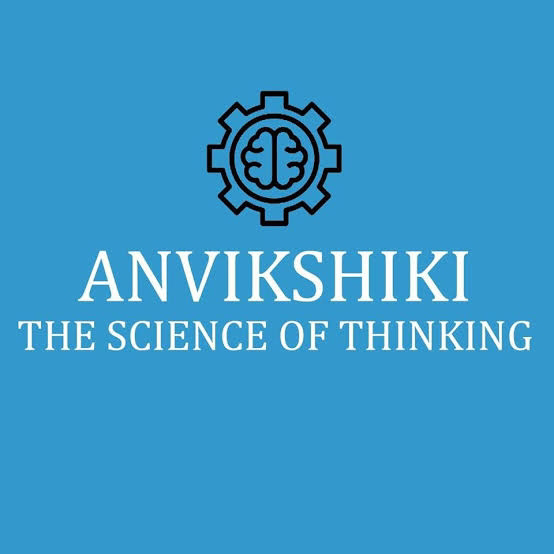The Credit of This article goes to Kautilya's Arthashastra
Aanvikshiki— I call it the science of strategic thinking. Some people call it
critical thinking. R.P. Kangle, one of the profound scholars of the Arthashastra,
called it philosophy. Aanvikshiki is also logical thinking, scientific thinking,
inquiry and research.
Swami Tejomayananda (the head of the Chinmaya Mission) in his classic
composition Mana-shodham calls aanvikshiki a bhrama vidya—it is self knowledge, enlightenment and a path leading to self-realization, moksha,
nirvana and mukti.
Aanvikshiki is a Sanskrit word with various meanings. One has the freedom to
interpret, reinterpret and even discover new meanings of the same word.
The only rule is that the meaning of the word should help us elevate our
thinking. As long as this is taken care of, one can give new dimensions and
perspectives, depending on our understanding.
Let us look at the word ‘dharma’. It means ethics, morale, righteousness, duty,
responsibility and many more. One can even give new meanings to it.
However, let us look at the Sanskrit meaning of ‘dharma’ to understand the
word better. Dharma comes from the root word dhir, meaning ‘to hold’.
dharayati iti dharma means dharma is ‘that which holds’.
Nothing can exist without something. It is the very essence of a thing, the very
nature and property of an object. So, what is the dharma of fire? It is heat and
light. Remove heat and light from fire, it will no more be fire at all. Remove
sweetness from sugar and it is no more sugar.
Dharma is the very base and foundation of any object. Everything exists based
on dharma, including the natural laws.
In a similar way, let us understand what aanvikshiki stands for.
Let us go to the root word in Sanskrit, which most scholars regard as the most
ancient, scientific and perfect language of the world. It is also called the mother
of all languages.
Aanvikshiki is the combination of two words—anu and ikshiki. Anu means
‘atom’, the smallest part of anything. Ikshiki means ‘a person who wants to
know’, an inquirer, a thinker, a researcher, an examiner or a logician.
Therefore, aanvikshiki is the process of enquiring and right thinking, or the
science of thinking. Now as a reader you can also offer your own interpretation
after studying and practising aanvikshiki yourself.
Aanvikshiki was one of the names of Draupadi in the Mahabharata. She was a
brilliant woman who had studied the science of thinking.
We find various mentions of aanvikshiki in other scriptures like the Shrimad
Bhagawat, the Ramayana and even in the Upanishads. So, even though for us
aanvikshiki is a new word, it was quite popular in ancient time



Very well explained. 👍
ReplyDelete